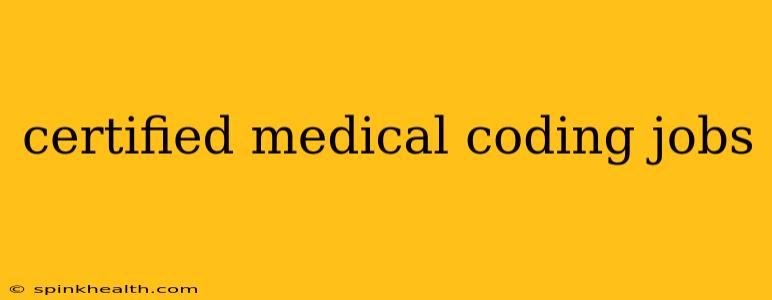Decoding the Path to a Certified Medical Coding Career: A Journey Through the Industry
The world of healthcare is vast and complex, a intricate network of patient care, medical procedures, and mountains of paperwork. Hidden within this system, however, lies a critical role: the certified medical coder. These professionals are the silent architects of accurate healthcare billing, ensuring hospitals and medical practices receive proper reimbursement for their services. If you're intrigued by the meticulous detail of medicine combined with the analytical nature of data management, then a career in certified medical coding might just be the perfect fit for you. Let's embark on a journey to uncover what it takes to succeed in this rewarding field.
What Exactly Does a Certified Medical Coder Do?
Imagine being the translator between a doctor's detailed notes and the complex language of medical billing. That's essentially the job of a certified medical coder. They review patient medical records—everything from doctor's notes and lab results to diagnostic imaging reports—and translate the clinical information into standardized alphanumeric codes. These codes, based on systems like ICD-10 (International Classification of Diseases, 10th Revision) and CPT (Current Procedural Terminology), are then used to create accurate medical claims for insurance reimbursement. Accuracy is paramount here; a single misplaced digit can lead to delays, denials, and financial difficulties for the healthcare provider.
What Skills Are Needed to Become a Certified Medical Coder?
Becoming a successful certified medical coder requires a blend of hard and soft skills. Let's explore some key attributes:
- Strong attention to detail: Accuracy is non-negotiable. Medical coding requires meticulous review of medical records to ensure every detail is correctly translated into codes.
- Analytical thinking: You need to decipher complex medical terminology and clinical documentation, identifying the key elements for accurate coding.
- Knowledge of medical terminology, anatomy, and physiology: A solid foundation in medical concepts is crucial for understanding the clinical information being coded.
- Understanding of ICD-10 and CPT coding systems: Mastering these coding systems is the cornerstone of your job. This requires dedicated study and ongoing learning, as these systems are regularly updated.
- Proficiency in computer software: Medical coders use specialized software to assist with coding and billing processes.
- Excellent communication skills: Though much of the work is independent, clear communication with doctors, other healthcare professionals, and insurance companies is essential for resolving coding issues.
How Can I Get Certified as a Medical Coder?
The journey to becoming a certified medical coder usually involves formal education and certification exams. Many options exist, including:
- Associate's degree in Health Information Technology: This provides a comprehensive education in medical coding, billing, and other related areas.
- Medical coding certificate programs: These programs are shorter and more focused, directly preparing you for the certification exams.
- Online courses and self-study: While these can supplement formal education, a structured program is often preferred for thorough preparation.
After completing your education, you'll need to pass a certification exam. The specific exam depends on your chosen certification, but common ones include the Certified Professional Coder (CPC) exam offered by AAPC (American Academy of Professional Coders) and the Certified Coding Specialist (CCS) exam offered by AHIMA (American Health Information Management Association).
What Are the Career Prospects for Certified Medical Coders?
The demand for skilled medical coders remains strong. The healthcare industry consistently generates vast amounts of data, and accurate coding is essential for its financial stability. Therefore, the career outlook for certified medical coders is positive, offering various opportunities for growth and advancement within hospitals, clinics, physician practices, and even insurance companies.
What is the Salary Range for Certified Medical Coders?
Salary expectations depend on several factors, including experience, location, and certification level. However, certified medical coders typically earn a competitive salary, with the potential to increase with experience and additional certifications.
What are the different types of medical coding jobs?
While the core function remains consistent, medical coding jobs can vary based on the healthcare setting. This includes working for hospitals, clinics, physician offices, insurance companies, and even outsourcing firms specializing in medical billing and coding. Each environment offers a unique experience and set of responsibilities.
Is a medical coding job stressful?
As with many healthcare-related jobs, the work can be demanding. Meeting deadlines, ensuring accuracy, and dealing with complex medical information can be stressful at times. However, many coders find the work intellectually stimulating and rewarding, knowing their contributions play a critical role in the smooth functioning of the healthcare system.
This journey into the world of certified medical coding highlights a career path that offers both challenge and fulfillment. With dedication, the right skills, and the proper certification, you can embark on a rewarding career helping shape the financial health of the healthcare industry.

